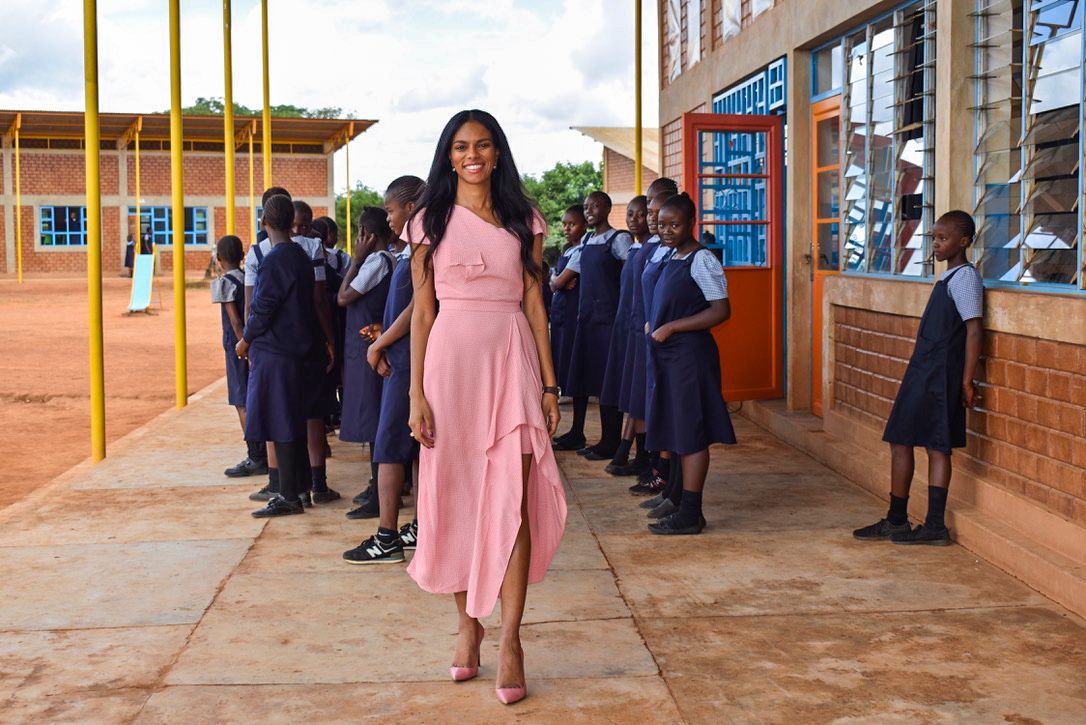I love fashion. It’s not just part of my job as an international model, it’s a way of expressing myself and my cultural heritage. I am inspired and excited by the creativity of designers and the variety of fashion choices we can have available to us. Africa has many talented designers who are being recognized on a global scale. Just recently, African designer Kenneth Ize shared the exciting news that he will be collaborating with the Karl Lagerfeld fashion house to co-create the spring 2021 capsule collection.
Yet, when it comes to sustainability, the fashion industry has a lot of work to do. The fast fashion industry that originated in the West has accelerated fashion’s negative environmental and social impact. According to the United Nations Framework Convention on Climate Change, the fashion industry uses more energy than the aviation and shipping industries put together. It also states that the industry produces about 20% of global waste water and 85% of textiles end up in landfills or are incinerated when most of these materials could be re-used. Add to this the fact that fashion is also one of the biggest employers of forced labor, and the picture is pretty grim.
Now transport this to Africa, which is already experiencing the impact of climate change and though many African countries are pioneering the fight against plastic – some have made plastic bags illegal for example – we still have plenty to do to ensure we build sustainable businesses, especially in the fashion industry.
For me, sustainability is ultimately about trying to maintain our human existence and we can’t sit back and leave it to others, and this brings me to Malaika.
Malaika is the grassroots non-profit I founded in the Democratic Republic of the Congo (DRC). Its mission is to empower a community of people through education and health programs. It now comprises a school for over 346 girls and a community center that provides education and sport for development programs to 5,000 youth and adults, and we built and refurbished 20 wells that serve over 30,000 people with clean water. We have built Malaika over the past 13 years with sustainability in mind, and to us, it means using minimal resources and using them well.
Our IT suite, school and community center are powered by solar energy. In 2017, we set up our small farm where we teach organic farming and the food produced supplies the school canteen. We engage the community in a big clean-up of the village each month and our students plant trees and learn about the environment. Education is key to empowering people but it’s also key to changing our environmental impact. We are producing the leaders of tomorrow and we want them to be equipped to make an even bigger positive impact on our global carbon footprint than we have.
What can we do to reduce the effects of climate change? Firstly, I believe we, as consumers, need to hold more businesses to account. I try to do modeling campaigns with brands that are ethical and care about giving back because sustainability, to me, is also about the people who make our clothes. According to CARE International, an organization fighting global poverty, 75% of garment sector workers are women and the Covid-19 pandemic has led to brands cancelling big orders with suppliers leading to many workers losing jobs.
So, what can we as individuals do? We need to change the way we shop and ask more questions about how our favorite brands are producing their clothes. We need to take the time to investigate who is making them, what their working conditions are, and what they get paid. When I buy clothing or accessories, I ensure they are items I love and can see how they will fit in with the other clothes I own. HURR is the world’s leading fashion rental platform and I use it to rent clothes for events so I can wear a one-off piece or luxury brand item without buying it. A website I always check is eco-age.com for the latest news on global supply chains, artisanal brands, community projects and suggestions on which brands to shop. Finally, take a look at the United Nation’s ActNow climate action campaign for practical tips on how you can make a difference.
Start today. It takes time and effort to change our habits but every step we take towards sustainability will help change the world for future generations.
– By Noella Coursaris Musunka; an international model, philanthropist and founder of Malaika, a grassroots non-profit in the DRC.
